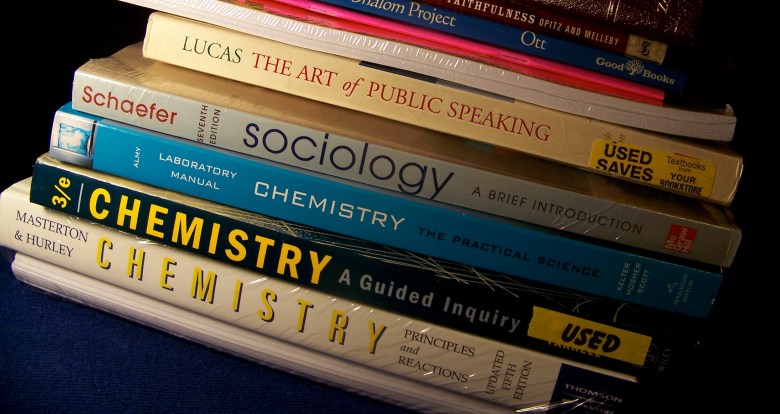
With most universities now back in session, the National Union of Students (NUS) has launched a new campaign calling for cheaper course textbooks, but printers and publishers say textbooks will always be more expensive due to their short runs. NUS welfare officer Robby Magyar is visiting university campuses across the country to collect signatures for a change.org petition, calling on the Federal Government for their support. The NUS is blaming the hefty prices on Parallel Import Restrictions (PIR) which they say restrict the importation of foreign printed textbooks, allowing publishers and printers in Australia to name their price. However the Australian Publishers Association has labelled PIR as having no impact on book prices.

Some students are forking out $150 for a single textbook
Printers too strongly contradict the view of the NUS. A book printing industry insider has told Australian Printer PIR and the industry should not foot the blame for expensive textbooks. He says customisation and short print runs are hiking up text book prices, and explains that because most books are designed for specific university courses, only a small group of people will buy the book. But authors and publishers still need to cover production costs, and are forced to raise the price of individual books to cover themselves. The insider adds that although the education market is moving towards digitisation, the traditional printed book is still valued, “Many students still buy print books, it’s a good medium for people who like learning through a textbook, that’s encouraging.” Typical of students is William Houldsworth, a first year nursing student who says he will have to fork out $150 in required textbooks for one subject alone. He says the current system is not fair to students, “If you were to go to a normal bookstore to buy a normal book, you wouldn’t be paying even half the amount you pay for student textbooks.” However Houldsworth and the NUS – has failed to understand that textbooks are short run, and therefore inherently more expensive. Magyar says the NUS is open to engaging in talks with publishing industry groups. “I haven’t yet had conversations with [industry groups] as I’ve been travelling around the country. It’s definitely something that I’ve wanted to do and the NUS has wanted to do as well,” he says. “There are other ways to fix this, put textbooks online, students can lobby their universities to put more core text in libraries, but with every solution there are going to be disadvantages that come along with it due to multiple vested interests.”
Comment below to have your say on this story.
If you have a news story or tip-off, get in touch at editorial@sprinter.com.au.
Sign up to the Sprinter newsletter
